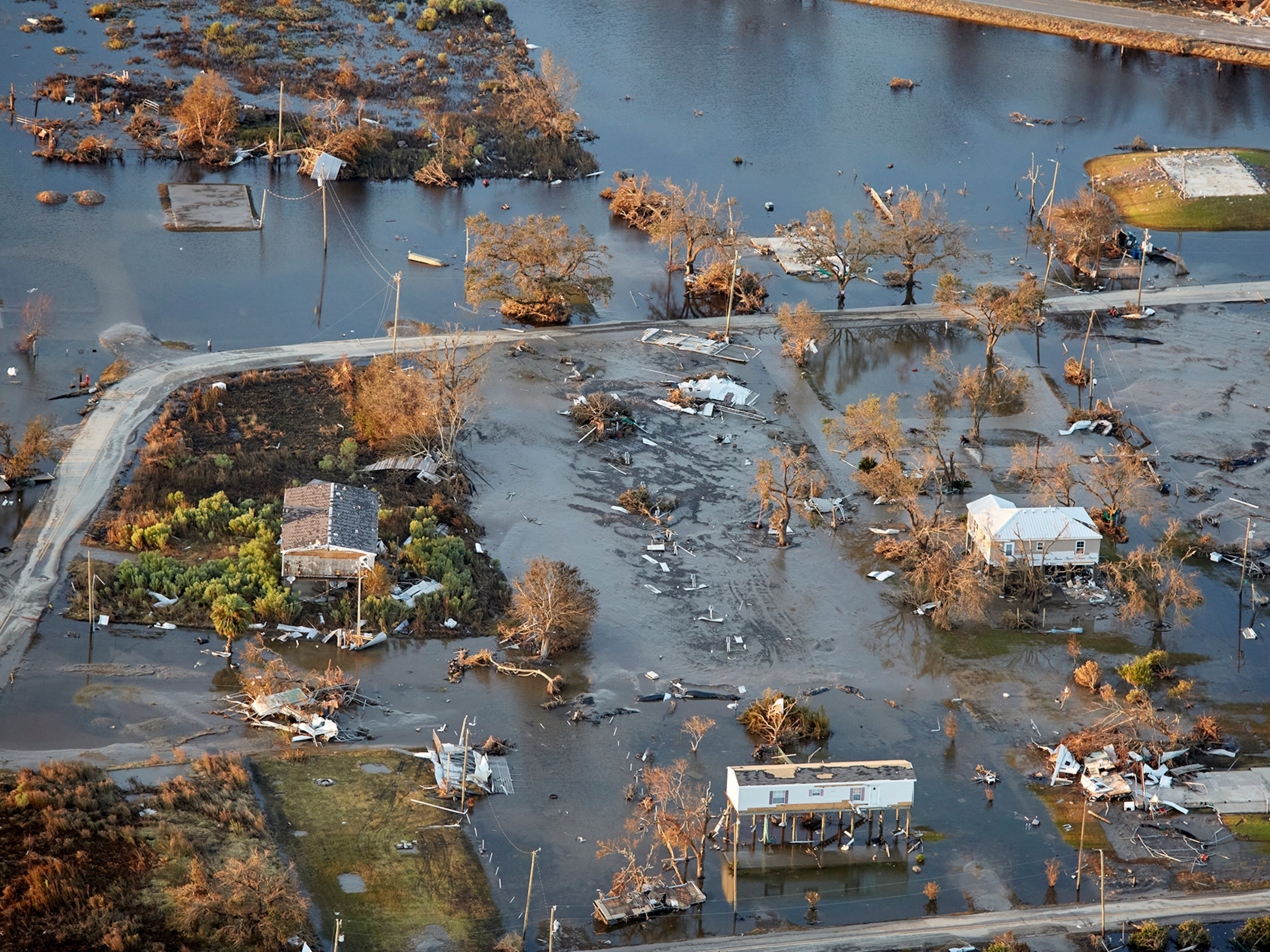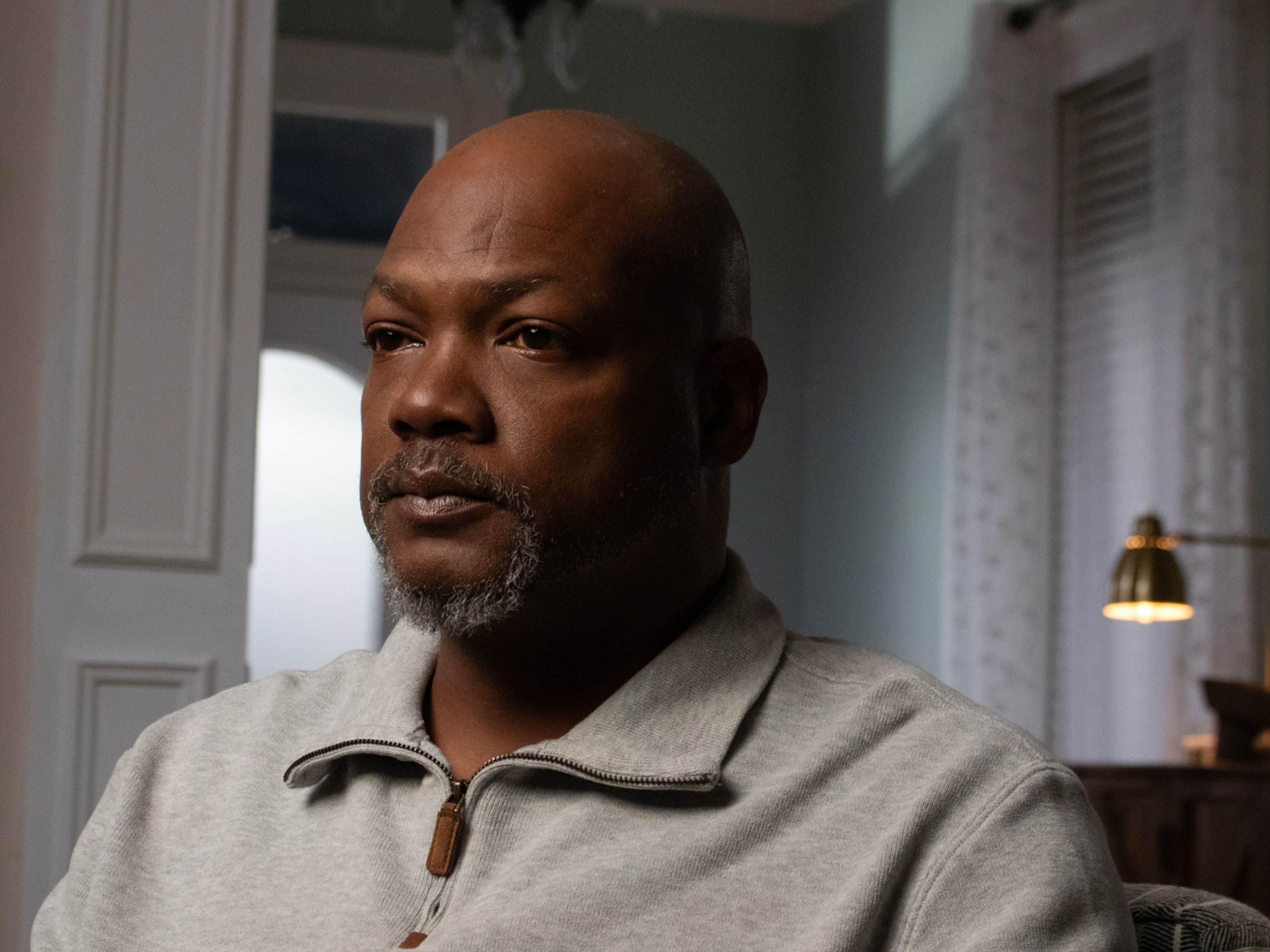
Hurricane Could Push Spilled Gulf Oil Into New Orleans
With predictions for a feisty 2010 hurricane season, experts fear that a major storm could carry oil from the Gulf spill into downtown.
Inside the National Weather Service office in Slidell, Louisiana (map), data screens are showing clear skies over the Gulf of Mexico.
But lead forecaster Robert Ricks, who's coordinating 12-hour emergency shifts to provide information to people combating the Gulf oil spill, knows not to drop his guard.
"Just when you think everything's fine—that's when it can go wrong," said Ricks, who was also on duty in 2005 as Hurricane Katrina pummeled Slidell.
Ricks and fellow Gulf forecasters could soon be back in the hot seat: The 2010 Atlantic hurricane season starts June 1, and the latest predictions say the season will be much feistier than 2009's.
Hurricane forecasters at Colorado State University predicted in early April that the season will see 15 named storms that will spawn 8 hurricanes, half of which will be major storms, with winds exceeding 110 miles (177 kilometers) an hour.
With oil still flowing from the site of the Deepwater Horizon rig explosion in the Gulf of Mexico—and no end in sight—it's possible that a hurricane could send lingering oil surging toward Gulf shores, experts say. (See pictures of giant "domes" being built to help contain the leaking oil.)
"Say the oil spill remained and [another] Katrina hit," said Nan Walker, a physical oceanographer at Louisiana State University (LSU) in Baton Rouge. "The oil could be propelled onto land by the storm surge and monster waves."
Ron Kendall, chair of the Department of Environmental Toxicology at Texas Tech University in Lubbock, made a more dire prediction: "You put a major hurricane in there, you’re liable to have oil in downtown New Orleans."
Gulf Due for a Busy Hurricane Season
The National Hurricane Center released its official 2010 predictions May 20, and early "signs are suggesting it will be busy," according to James Franklin, branch chief of the center's Hurricane Specialist Unit in Miami.
Warm water is a key hurricane ingredient, and the waters in the tropical and eastern Atlantic are warmer now than they've ever been in recorded history, Franklin said.
Plus, the ongoing El Niño event, which tempered hurricane activity in 2009, is expected to dissipate this year. (See "2009 Hurricane Season Quietest in Decades.")
Hurricane winds move counterclockwise, so a storm passing southeast of the spill could push oil away from the Gulf shore, into open waters.
However, if a storm moved west of the slick—along the same track as Katrina—it could squeeze oil toward the northern Gulf Coast, and "that scenario looks pretty grim," according to LSU's Walker.
(Also see "Gulf Oil Spill Could Reach East Coast Beaches.")
But since there's no precedent—no one knows of a previous hurricane hitting oil-covered waters—it's impossible to predict what could happen, experts warn.
Oil Spill Gone Before Big Storms Arrive?
A hurricane in the Gulf of Mexico would also impact oil-spill recovery teams, according to Doug Helton, incident operations coordinator for the National Oceanic and Atmospheric Administration.
Boats, planes, and remotely-operated vehicles would have to be brought in if a storm was bearing down, he said. Likewise, booms—buoyant tubes that encircle sensitive areas to keep oil at bay—could be displaced or even shredded by the giant waves.
Still, such speculation might be moot, noted Gregory Stone, director of LSU's Coastal Studies Unit. June hurricanes are usually weak, and by the time the heavy hitters arrive in August, the oil may be mostly cleaned up.
Hurricane winds and waves could actually help the oil-soaked Gulf by further diluting what's left of the oil, allowing the environment to break some of it down, Stone added.
However, diluted oil means smaller particles, which could more easily infiltrate wildlife-rich marshes. (Related: "Gulf Oil Spill a 'Dead Zone in the Making'?")
Gulf Oil Spill Has Residents "Scared to Death"
Sitting on his moored boat in St. Bernard Parish, third-generation shrimper George Barisich said that waiting for the oil spill feels like anticipating the approach of a hurricane.
"It’s looming out there, and we don’t know exactly where it’s going to go," said Barisich, who, unable to shrimp in the oil-soaked Gulf, has been spending his time tidying up his freshly painted trawler.
"I'm scared to death."
Barisich has been here before: His boat and house were mostly destroyed by Hurricane Katrina, which walloped this low-lying parish southeast of New Orleans.
"We're just barely digging ourselves out of the black hole now," he said. "And this thing is poised to be worse."



